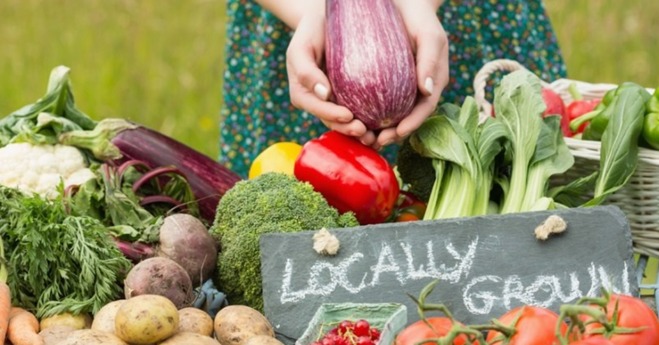In an era where the origins of our food have become increasingly important, supporting local and sustainable food sources is a powerful way to make a positive impact on both the environment and the community. By opting for food that is produced ethically, with minimal environmental impact, consumers can contribute to a more resilient and sustainable food system. In this article, we’ll explore practical ways you can support local and sustainable food sources, fostering a healthier planet and stronger communities.
1. Know Your Local Farmers: One of the most direct ways to support local and sustainable food sources is to get to know the farmers in your area. Attend farmers’ markets, join community-supported agriculture (CSA) programs, and engage in conversations with local producers. By establishing a connection with farmers, you gain insight into their farming practices and can make more informed choices about the food you purchase.
2. Explore Farmers’ Markets: Farmers’ markets are vibrant hubs of local produce, offering a diverse range of fresh and seasonal items. By shopping at farmers’ markets, you support local farmers directly, reduce the carbon footprint associated with transportation, and enjoy the freshest, most flavorful produce available.
3. Join a Community-Supported Agriculture (CSA) Program: CSA programs provide an opportunity to directly support local farmers by subscribing to a share of their harvest. Members receive regular deliveries of fresh, seasonal produce directly from the farm. This model not only supports local agriculture but also fosters a sense of community between consumers and farmers.
4. Choose Locally Sourced Products: When shopping at grocery stores or supermarkets, prioritize products labeled as “local” or “locally sourced.” Many retailers now highlight the origin of their products, making it easier for consumers to make conscious choices and support nearby farmers and producers.
5. Embrace Seasonal Eating: Supporting local and sustainable food sources often involves embracing seasonal eating. Opt for fruits and vegetables that are in-season in your region, as they are more likely to be sourced locally and have a lower environmental impact. Seasonal eating also adds variety to your diet and connects you more closely to the natural rhythm of agriculture.
6. Participate in Community Gardens: Community gardens offer a hands-on way to support local and sustainable food sources. Joining or starting a community garden allows you to grow your own produce or contribute to a communal effort, promoting self-sufficiency and fostering a deeper connection to the food you consume.
7. Choose Sustainable Seafood: Sustainable seafood choices are crucial for maintaining healthy oceans and marine ecosystems. Look for seafood that is certified by organizations such as the Marine Stewardship Council (MSC) or the Aquaculture Stewardship Council (ASC), indicating that it has been sourced responsibly and sustainably.
8. Reduce Food Waste: Supporting sustainability also involves minimizing food waste. Plan your meals, store food properly, and be mindful of expiration dates. By reducing waste, you not only contribute to a more sustainable food system but also save money and resources.
9. Explore Local Food Co-ops: Local food cooperatives, or co-ops, are community-owned stores that prioritize locally sourced, organic, and sustainable products. Joining a co-op allows you to actively support a community-driven approach to food sourcing while enjoying access to a range of ethically produced items.
10. Support Sustainable Brands: Beyond fresh produce, consider supporting brands that prioritize sustainability in their practices. Look for products with certifications such as USDA Organic, Fair Trade, or Rainforest Alliance. These certifications indicate a commitment to ethical and environmentally conscious production.
11. Attend Farm-to-Table Restaurants: Farm-to-table restaurants prioritize sourcing ingredients directly from local farmers and producers. By dining at these establishments, you not only enjoy delicious, fresh meals but also support the local food economy and sustainable farming practices.
12. Advocate for Local and Sustainable Policies: Engage with your local community and advocate for policies that support local and sustainable agriculture. Encourage local governments to invest in farmers’ markets, support sustainable farming practices, and incentivize businesses to source locally.
In conclusion, supporting local and sustainable food sources is a powerful way to make a positive impact on the environment, promote community resilience, and enjoy healthier, tastier meals. By making conscious choices about the food we consume, we contribute to a more sustainable and ethical food system that benefits us all. Each decision, no matter how small, can be a step towards a more sustainable and interconnected approach to nourishing ourselves and our communities.


















